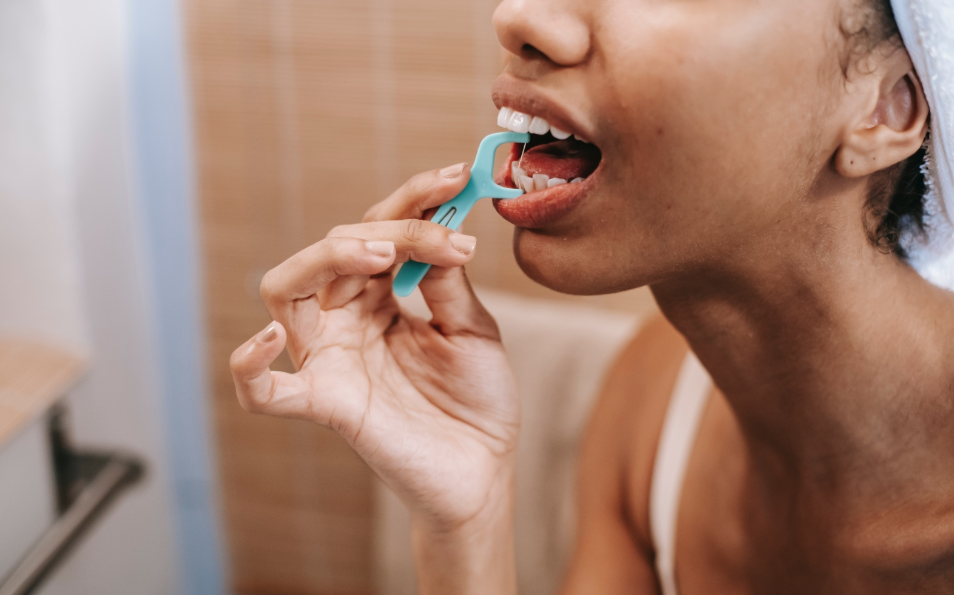Key Takeaways
- Daily mouth care routines are essential for preserving dental well-being.
- Routine dental examinations are crucial for the early identification of oral problems.
- A well-rounded diet promotes healthy teeth and gums.
- Protective measures like mouthguards can prevent damage during physical activities.
The Importance of Daily Oral Hygiene
Achieving a healthy smile begins with a steadfast commitment to daily oral hygiene. It involves more than simply brushing your teeth twice a day. It is about adopting a comprehensive routine that includes proper brushing techniques—such as angling the toothbrush at 45 degrees to the gums and making short, gentle strokes—and ensuring you brush for two full minutes. Services from a dentist in Converse are pivotal in guiding patients on effective oral hygiene practices. Moreover, flossing is often overlooked, yet it is crucial in dislodging food particles trapped between teeth where a brush can’t reach. Incorporating an antiseptic mouthwash can further enhance oral health by reducing and neutralizing acids produced by bacteria in the mouth.
Regular Dental Visits: Prevention and Early Detection
It’s easy to overlook the importance of biannual dental visits amidst our busy schedules, yet these appointments are invaluable for preserving oral health. Through routine examinations, dentists can identify potential threats like early-stage cavities or signs of gum disease—conditions that might silently develop without presenting immediate pain or discomfort. During such visits, professional cleaning can also be performed to remove tartar, which cannot be eradicated by regular brushing. The importance of these check-ups is immense concerning health results and cost savings. Addressing dental issues promptly prevents complex and costly treatments later on. Thus, integrating these check-ups into your biannual plans can significantly stymie oral health problems before they escalate.
The Role of Diet in Dental Health
The adage “you are what you eat” rings especially true for oral health. Most people fail to realize that consuming foods and beverages is just as important as brushing and flossing habits. Calcium-rich foods such as cheese and yogurt can fortify tooth enamel. At the same time, crunchy fruits and vegetables like apples and carrots stimulate saliva production, acting as natural scrubbers and balancing oral pH levels. On the other hand, food high in sugars can create an acidic environment that wears down tooth enamel over time. Consistent exposure to soda, candy, and even certain fruits like citrus can lead to this erosion. Understanding these dietary impacts allows one to make informed food choices that support their dental wellness and overall physical health.
The Protective Power of Mouthguards
Dental safety should always be a priority for individuals active in contact sports or recreational activities. Mouthguards protect against oral injuries, from chipped teeth to tongue and soft tissue damage. Yet, not all mouthguards are created equal. Custom-fitted mouthguards—designed specifically for the wearer’s dental profile by dentists—offer superior protection compared to generic store-bought alternatives. These custom guards fit better, enhancing comfort and efficacy and ensuring athletes maintain peak performance with ample protective measures. Putting money into a personalized mouthguard is a proactive measure in protecting both oral and general health during physical activities.
Fluoride: Nature’s Cavity Fighter
Fluoride is a formidable ally in the fight against tooth decay, functioning as a natural defense mechanism that strengthens enamel and reverses the early signs of tooth decay. Fluoride is naturally found in water and readily available in toothpaste and dental products. Fluoride works by promoting remineralization and inhibiting the growth of harmful oral bacteria. Regular exposure to this mineral, either through drinking fluoridated water or fluoride products, is essential for maintaining optimal dental health. Emphasis should be placed on the proper use of fluoride toothpaste, ensuring parents monitor the amount young children use to avoid fluorosis. Integrating fluoride into daily oral care is one of the most effective preventive measures against cavity development.
Understanding Different Dental Care Products
Navigating the aisles of dental care products can be overwhelming, given the many options available. Selecting the right products involves understanding their benefits and limitations. Choosing a soft-bristled toothbrush is crucial to avoiding enamel abrasion and gum damage. Fluoride content is key for toothpaste, but additional benefits like whitening or sensitivity relief should be considered based on specific needs. Electric and manual toothbrushes: while both can effectively clean teeth, electric toothbrushes often make the process easier and more efficient, particularly for individuals with limited dexterity. Water flossers are a helpful alternative or complement to traditional flossing, reaching deep between teeth and below the gumline. Making informed choices about these products is integral to refining and enhancing one’s oral care regimen.
Conclusion: Building a Routine for Lifelong Dental Health
Developing a consistent and comprehensive dental care routine early in life can yield lasting benefits that extend well into the future. Combining simple daily practices—embracing effective brushing and flossing techniques, aligning dietary habits with oral health priorities, and utilizing fluoride appropriately—forms the foundation of dental wellness. Moreover, regular dental check-ups and proactive protective measures like wearing mouthguards go hand in hand with these habits. Remember that oral health goes beyond appearance; it is fundamental to overall health and well-being. Maintaining a diligent oral care routine means investing in a lifetime of healthy, beautiful smiles.

